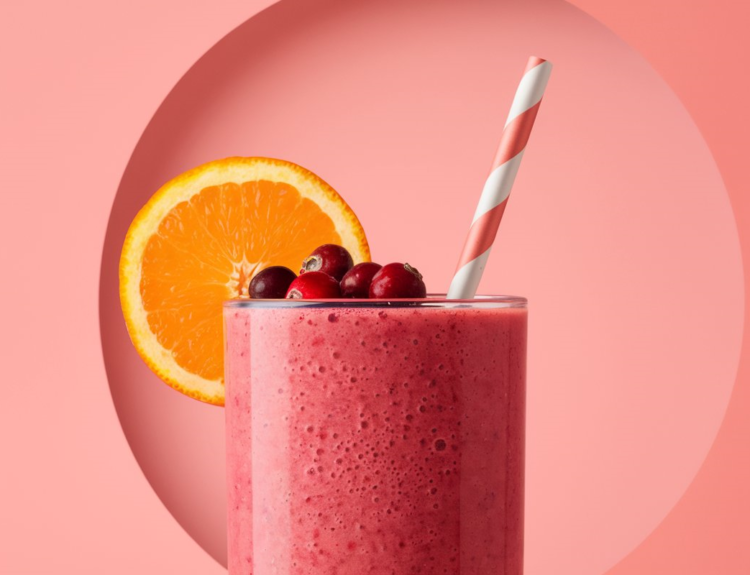Water, often hailed as the elixir of life, plays a vital role in maintaining our well-being. We’re frequently reminded of the importance of staying hydrated, but have you ever wondered about the implications of an excessive approach? What happens when the simple act of trying to keep healthy takes an unexpected turn? In this article, we delve deep into the potential risks and consequences that arise when individuals drink too much water too fast.
Let’s explore what happens when you drink too much water too fast. Discover the potential risks of excessive water consumption.
In this article:
- How much water is too much? Understanding overhydration
- Drink too much water too fast – Side effects
- Recognizing the symptoms of overhydration
- Drink too much water too fast – Who’s most at risk?
- Tips to avoid drinking too much water too fast
HOW MUCH WATER IS TOO MUCH? UNDERSTANDING OVERHYDRATION
Have you ever found yourself drinking water too fast and wondering if it could affect your health? Well, it’s essential to understand “overhydration” to stay healthy. Overhydration happens when we drink more water than our bodies can handle. While staying hydrated is crucial, drinking too much water too fast can be harmful.
Our bodies need a delicate balance of certain chemicals, called electrolytes, to work correctly. Drinking too much water too fast can throw off this balance.
To maintain the right balance, be aware of the recommended water intake and the factors that affect individual hydration needs. Experts recommend that men aim for a total daily fluid intake of approximately 3,000 ml, and women should aim for about 2,200 ml. However, note that each person’s water needs vary based on age, weight, activity level, and climate.
Suppose you find it challenging to keep track of your water intake and don’t have the time to calculate precisely how much water you’ve consumed. In that case, the Hidrate Spark Smart Water Bottle is a convenient solution. In recent times, smart water bottles have been gaining popularity for their ability to simplify and enhance the hydration tracking process.
Equipped with an LED smart sensor puck, these bottles glow to remind you when to take a sip. With this advanced technology, you can effortlessly ensure you meet your daily water consumption goals. The app connected to the smart water bottle provides you with valuable insights into your hydration patterns and progress. By having a clear view of your daily water intake, you can prevent the risks associated with both dehydration and overhydration.
DRINK TOO MUCH WATER TOO FAST – SIDE EFFECTS
Drinking too much water too fast may lead to hyponatremia, also known as water intoxication. Hyponatremia occurs when an individual consumes excessive water, causing a dilution of electrolytes in the blood and a drop in sodium levels. This condition is dangerous and potentially life-threatening if not promptly recognized and treated.
Hyponatremia can result from various factors, including excessive water intake, strenuous physical activity, and certain medical conditions. When a person drinks too much water too quickly, the kidneys may struggle to excrete the excess water, disrupting the delicate balance of electrolytes in the body, which affects the normal functioning of cells and organs.
Early symptoms of hyponatremia may include headache, nausea, vomiting, and confusion. As the condition worsens, seizures, muscle spasms, and even loss of consciousness may occur. In extreme cases, hyponatremia can cause cerebral edema, a life-threatening condition.
While proper hydration is essential for overall health, it is equally important to avoid excessive water intake. Paying attention to the body’s thirst signals and maintaining a balanced approach to hydration can help prevent the risks associated with overhydration and the development of hyponatremia.
RECOGNIZING THE SYMPTOMS OF OVERHYDRATION
It’s crucial to be aware of the symptoms of overhydration to prevent potential health complications.
- Frequent bathroom visits: If you make trips to the restroom more often than usual and have significant amounts of clear, diluted urine, it might indicate that you drink excessive water.
- Feeling bloated or swollen: Overhydration can lead to bloating and swelling, usually in the hands, feet, and ankles.
- Nausea and headaches: Drinking excessive water might cause you to feel nauseous or experience headaches.
- Feeling dizzy or lightheaded: Drinking too much water can mess with the balance of salts and minerals in your body, leading to dizziness.
- Confusion or muscle cramps: Overhydration can sometimes lead to confusion or muscle cramps due to low sodium levels in your blood.
In extreme cases, overhydration can lead to brain swelling and exert pressure on the brain, causing severe neurological complications. It’s important to note that the severity of symptoms may vary depending on the individual and the amount of excess water consumed. Certain medical conditions or medications may also increase the risk of overhydration.
By paying attention to your body’s signals and drinking water in moderation, you can prevent the risks associated with overhydration and ensure your overall well-being. If you ever experience some of these symptoms and are concerned about your water intake, don’t hesitate to seek medical advice. Remember, a balanced approach to hydration is critical to maintaining good health and avoiding potential complications.
Listen to your body, and stay hydrated correctly!
Drink too much water too fast – Who’s most at risk?
Specific individuals are more prone to overhydration due to a variety of factors. For instance, athletes, especially those participating in strenuous activities like marathons, face an increased risk of overhydration. The interplay between heavy perspiration and excessive fluid intake can disrupt the body’s electrolyte balance, leading to a condition known as exercise-associated hyponatremia.
People with specific medical conditions, such as kidney disorders or heart failure, may encounter difficulty regulating their fluid levels. Their bodies might struggle to eliminate surplus water efficiently, elevating the overhydration likelihood.
Furthermore, older adults should be cautious. As age advances, the sense of thirst may diminish, potentially leading to inadequate or excessive fluid consumption. Additionally, medications like diuretics can impact the body’s fluid balance.
Even psychological factors, like compulsive water consumption, can lead to excessive fluid intake, regardless of physical requirements.
If you identify with some of these higher-risk categories, seeking guidance from healthcare professionals or registered dietitians is advisable. This step will help you create a well-suited hydration strategy that promotes your overall well-being.
TIPS TO AVOID DRINKING TOO MUCH WATER TOO FAST
Proper rehydration is crucial for maintaining our health, but it’s equally important not to drink too much water too fast. Striking the right balance is vital. Here are valuable tips for rehydrating safely and effectively:
- Listen to your body: Pay attention to your body’s thirst signals. Thirst is a natural indicator that your body needs fluids. Instead of rapidly gulping down large amounts of water, take small sips and let your body determine its hydration needs.
- Avoid binge hydration: Steer clear of consuming excessive water in a short span. Binge hydration can overwhelm your kidneys’ capacity to process fluids and lead to an electrolyte imbalance in the blood.
- Consider healthy smoothies: Many smoothie ingredients, such as those in green detox smoothies, contain ample water, vitamins, minerals, and antioxidants. These elements contribute to proper hydration and offer various health benefits.
- Limit caffeine and alcohol: Both caffeine and alcohol act as diuretics, prompting increased fluid loss. Be mindful of their intake and counterbalance them with sufficient water consumption.
- Use a smart water bottle: It can help you avoid the pitfalls of overhydration and enjoy the advantages of optimal hydration.
By adopting these strategies, you can ensure a safe and effective approach to rehydration, promoting your health and preventing the risks associated with improper fluid intake.
_____
While proper hydration is crucial, it can be dangerous when individuals drink too much water too fast. By heeding our bodies’ signals and adopting good hydration practices, we can balance staying hydrated and overdoing it. Cheers to mindful hydration!
This post may contain affiliate links. You can read the affiliate disclosure here.









